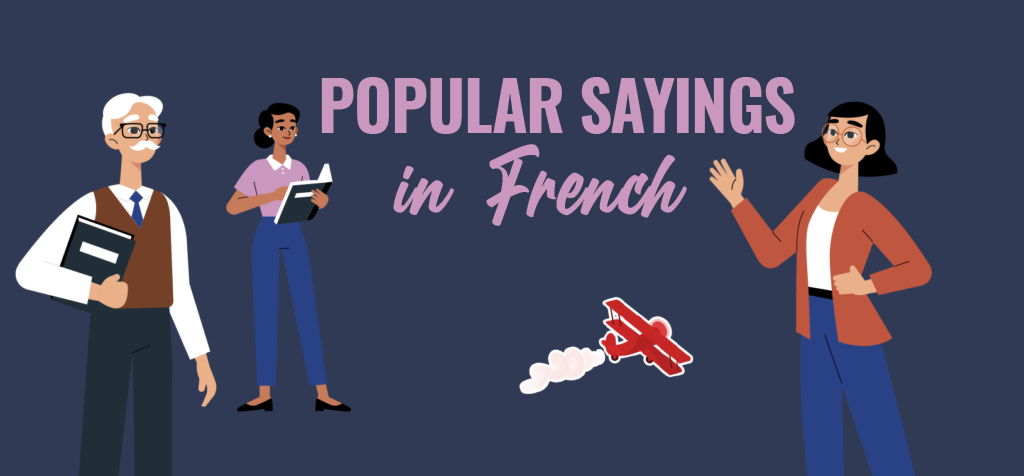Popular sayings in French

Some of the most popular sayings in French have been introduced into the English language. While these sentences may not always be pronounced correctly in French, spelling has often remained intact and meaning is the main reason for importing English sentences.
ÍNDICE DE CONTENIDOS
French loves for food, art, and philosophy have led to many French phrases making their way into everyday English.
Cook and eat
Actually, there is no English phrase for ‘take advantage / good appetite’:
- Mangez bien, riez souvent, aimez beaucoup.
Eat well, laugh often, and love abundantly.
- La vie est trop courte pour boire du mauvais vin, which means:
“Life is too short to drink bad wine.” This is a typical French saying, and the French like to consume moderate amounts of good wine with meals, at noon and in the evening.
Phrases for dinner
- A la carte: literally means “on the menu”; but its meaning has come to refer to ordering individual menu items rather than a three- or four-course prix fixe meal at a restaurant.
- Fashion: in French, it means “with style”; in English, it refers to serving cake with ice cream on top.
- Amuse-bouche: A great little aperitif; literal translation: something funny/pleasant to the mouth.
- Gratin – In English, this means that the dish is covered with cheese, which is then melted in the oven.
- Au jus – If you see a steak served ‘au jus’ in a restaurant, it means it is served with juice/gravy/gravy.
- Les meilleurs des meilleurs: means ‘the best of the best, this phrase literally translates as: ‘la crema de la crema’ (‘the cream of the crop’).
- Haute cuisine: “Haute cuisine”, is a compliment to the food and the chef who prepared it.
- Appetizer: an aperitif; literal translation: out of the masterpiece (the main course).
Art and architecture
- Art nouveau: a style from the late 19th and early 20th centuries.
- Avant-garde: some avant-garde, especially in the arts.
- Avant la lettre: something so avant-garde that the new trend has no name/term yet.
Life philosophy
- Bon voyage: “Bon voyage”; the French phrase is almost as common as its English translation.
- è la vita: It means “this is life”, this phrase indicates acceptance of circumstances as they are.
- Comme il faut: as it should be.
- Déjà vu: the experience you may have experienced feels the same before.
- Entre-nous: Something that is “between us”.
- Je ne sais quoi: indicates an essential characteristic, even if it cannot be named.
Popular phrases in French slang
Some French slang is also very popular. While these sayings have yet to make their way into everyday English, their frequency in French is high. These are expressions that have become popular, but cannot be translated literally without losing their meaning. If you like cinema, rap, or modern French rock music, you may want to learn some modern popular French sayings so that you can follow these terms.
As with all jargon, idioms, and precise terms, use it with caution, as usage depends on context. While native French speakers know when and when not to use these expressions, these phrases can come out of native speakers’ mouths in the wrong context.
- À cran: Irritable or nervous: used to describe stealthy behavior.
- Al final: “Okay, enough is enough”, which implies that the speaker has lost patience.
- Elle est bonne: “She is very beautiful.” Look at how you use this expression, as it has a strong sexual connotation.
- Engueuler: To tell someone.
- Regarder en chiens de faïence Look at each other as if you were going to face and fight.
- Rouler une pelle : French kiss
- Ta gueule: “Shut up.” This is a rude way of saying shut up, so use it with caution.
- Téloche: Television, but in a derogatory way; in English, it would be “the boob tube” or something else to indicate nonsensical television programs.
- Texto: To send text messages to someone, send a text message.


